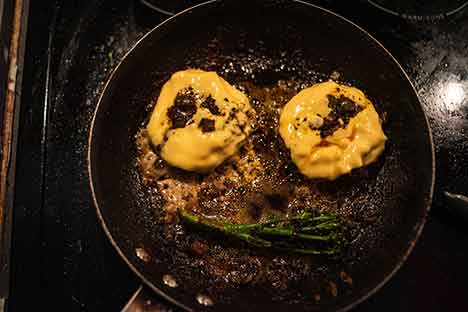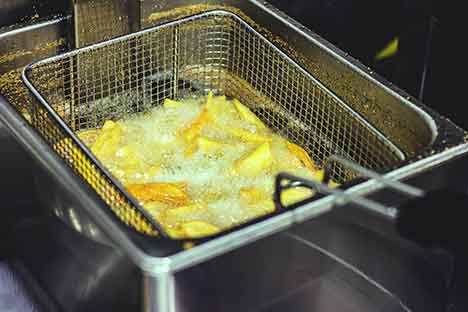As a Chicago restaurant owner, there are many things you’ll have to keep an eye on. One of them, there’s no doubt about it, is your trusty grease trap. It doesn’t sound like a lot of fun, right? Right. Luckily, we’ve decided to make the job easier for you. In other words: we’ve selected the most common signs your Chicago restaurant grease trap needs cleaning. Without further ado, let’s take a look at them!
What is a grease trap?
Here’s something you might want to call a standard definition of a grease trap: a plumbing device with a role to intercept a fair amount of greases and solids before they’re allowed entry into the wastewater disposal system. Once that process’s over, the smaller amounts of oil that have pushed through will enter the septic tanks (which also might need a deep clean) and certain treatment facilities. That way, the floating scum layers are formed.
Why should you keep your grease trap clean?
Needless to say, keeping your grease trap in proper condition (clean) is the best way to ensure there won’t be any foul odors inside your Chicago restaurant’s kitchen. Also, there’s another reason why a clean grease trap is very beneficial: you’ll rest assured knowing you’ve cleared any possibility of your kitchen being a health hazard to your employees, clients, or guests!
Will a faulty grease trap cause bad reviews?
As we’ve already said, an unkempt grease trap might be a health issue for your guests. Needless to say, they won’t be happy about it, so you can count on some bad reviews. Online reviews have a tremendous amount of power today, as professionals at usamovingreviews.com can attest. Nowadays, nobody chooses moving companies without reading plenty of reviews about them. And it’s the same with restaurants. More than once, bad reviews have resulted in businesses shutting down. So, you’ve got some good reasons to keep your kitchen clean as a whistle! Now that we’ve got that one out of the way, let’s see those signs your Chicago restaurant grease trap needs cleaning!

The grease trap is there to prevent most of the grease and solids that go through your restaurant from entering the wastewater disposal system.
#1 There’s a special kind of stench coming from the kitchen
This is one of the more obvious ways you can tell something’s wrong. As always, our sense of smell is there to tell the difference. Anyway, odors appearing suddenly that have no immediate explanation are probably a clear sign that your Chicago restaurant grease trap needs cleaning. For instance, you might think it’s coming from the garbage. So you throw the trash away, but the smell’s still there.
How does one recognize this “brand” of stench? You’ll want to know that a grease trap usually smells like a combo of cooking oil, food waste, grease, and sludge, all accumulated over time. If you notice a smell that seems to escape every explanation (except the one where there’s a grease trap involved), it must be the thing!
#2 When’s the last time you’ve cleaned the grease trap?
If you’ve got a hard time answering this one because you can’t quite remember the answer since it’s been a long time, it might just mean it’s time to clean your grease trap. Usually, you’ll want to clean your grease trap every three months or so. If it’s possible, organize the cleaning ordeal even more frequently! That’s especially important if you’re running a busy Chicago restaurant. You will “escape” specific issues related to your dirty grease trap and help make your kitchen fit the standard proposed by the EPA (Environmental Protection Agency) and Health Department.

Clean your grease trap every three months and you won’t have to worry about the signs that your Chicago restaurant grease trap needs cleaning.
#3 We’ve found grease in an unusual place
There probably isn’t a more visible sign that your Chicago restaurant grease trap could use some cleaning than grease appearing everywhere, even in the most unusual spots around your kitchen. It’ll leave you wondering: now, wait a minute, how’s this even possible? Here’s the answer: if the grease trap “decides” to clog up, the extra grease might find its way through the most accessible exit door such as sinks, sewer pipes, water lines, etc. Once that happens, it’s no wonder that grease ends up just about everywhere around the kitchen. If you notice this, make sure you always inspect if the grease trap’s causing the issue; clean the kitchen thoroughly of any grease deposits that might’ve built up!
#4 Blocked or slow drainage
What would you say is one of the main reasons some sink drains clog up? If you were to say a dirty grease trap, you’d be absolutely right! Remember the famous acronym called FOG (Fats, Oils, and Greases)? If so, you’ll want to know that they’ll start to solidify once they accumulate inside your grease trap. Some time passes, and you’re stuck with a trap that’s full of dense grease. That will make it difficult for water to flow through the sink drain, resulting in very slow waste movement. Eventually, this will lead to some significant issues. The worst of them might cause your restaurant to close temporarily.
There’s no need to emphasize that as soon as you notice excessive amounts of grease buildup inside the trap, it’s time you get professionals to assist you in handling the issue.

An unkempt grease trap might even result in your Chicago restaurant temporarily closing down, so think about that one!
Something of a conclusion
That’s about it on the signs that your Chicago restaurant grease trap needs cleaning! For the end, we’ve left a little suggestion you might find helpful when the time comes (and we hope it’ll never come, but you can never be too sure). As soon as you notice something’s not exactly right with your grease trap, your best bet is to call professionals to take care of the problem. There’s just no doubt about it! A trusty, professional plumbing crew is every restaurant owner’s dream!
